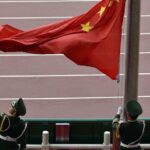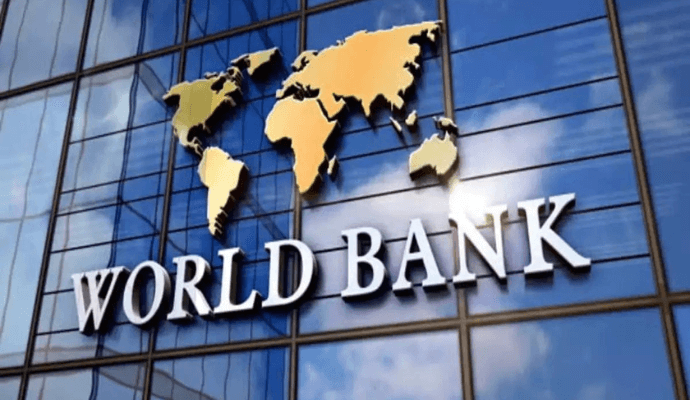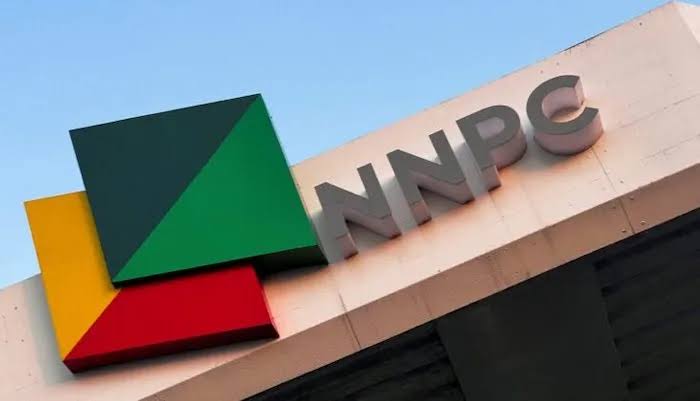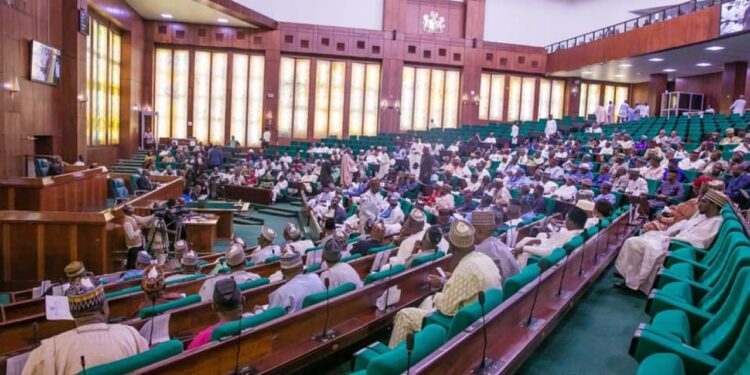
US Sanctions Chinese Firms Supplying Russian Drones, as Zelensky Calls For ‘Pressure’
October 18, 2024
China’s economic slowdown worsens.
October 18, 2024World Bank Calls on Nigeria to Audit NNPC for Greater Oil Revenue Transparency and to Maintain Economic Reforms


The World Bank has called on the Nigerian federal government to conduct an audit to reconcile the debts owed by the Nigerian National Petroleum Company Limited (NNPC) to the Federation as part of broader measures to sustain ongoing economic reforms. In its latest Nigeria Development Update (NDU) report, launched in Abuja, the Bank also recommended improving the reporting of oil revenues to the Federation Account Allocation Committee (FAAC) and maintaining a market-based price for Premium Motor Spirit (PMS).
The report, titled “Staying the Course: Progress Amid Pressing Challenges,” outlined several recommendations for the federal government, including ensuring that the gains from the removal of the PMS subsidy flow directly to the Federation. It also urged reforms in the Value Added Tax (VAT) regime, rationalization of tax expenditures, and ensuring that all foreign exchange (FX) transactions occur at market-determined rates. Additionally, the World Bank called for reducing non-essential expenditures, such as vehicle purchases and external training.
At the launch event, Nigeria’s Finance Minister, Wale Edun, confirmed the full deregulation of PMS, ending 40 years of subsidies. Meanwhile, Bauchi State Governor, Senator Bala Mohammed, expressed concern about the economic reforms, which he said had caused hardship for the population, particularly following the removal of fuel subsidies and the floating of the naira’s exchange rate.
The NDU report noted that since May 2023, Nigeria has undertaken significant reforms to stabilize its economy, leading to modest growth, improved fiscal health, and rising foreign exchange reserves. However, it also acknowledged that these measures have imposed short-term pressures on households and businesses, with inflation remaining high. The report emphasized the need to maintain these reforms while addressing structural issues to foster long-term investment, growth, and job creation.
Positive signs were emerging, according to the report. Nigeria’s fiscal deficit narrowed to 4.4% of GDP in the first half of 2024, down from 6.2% in the same period in 2023, which helped mitigate debt-related risks. Foreign exchange reserves grew from $32.9 billion at the end of 2023 to over $38.8 billion by mid-October 2024. However, inflation increased again in September 2024, largely due to rising gasoline prices and recent flooding.
The World Bank recommended sustaining the current macroeconomic policies, including the Central Bank of Nigeria’s tight monetary stance, and addressing long-standing structural constraints. These steps would accelerate progress in reducing inflation, driving investment, and fostering job creation, all of which are critical for Nigeria’s development.
In his remarks, World Bank Country Director for Nigeria, Dr. Ndiame Diop, praised Nigeria for taking bold steps to implement necessary but difficult reforms. He warned that without these changes, Nigeria risked falling into a severe fiscal crisis that would have prevented the government from meeting its obligations to citizens. He emphasized the importance of consolidating the improving fiscal outlook while providing support for the poorest households, particularly as they cope with the loss of purchasing power.
The NDU report also offered several key policy recommendations to build on Nigeria’s macroeconomic reforms and ignite growth and job creation. It called for maintaining a tight monetary policy until inflation is sustainably reduced, unifying the exchange rate to reflect market conditions, and expanding the foreign exchange market. Additionally, the Bank advised reducing debt risks by focusing on four key areas: continuing the removal of fuel subsidies, increasing transparency in the oil sector, raising non-oil revenues through better tax policies, cutting government waste, and prioritizing poverty-focused spending.
To protect vulnerable populations, the report recommended expanding cash transfer programs and strengthening social safety nets. In the medium term, staying committed to these reforms could lead to lower inflation rates, expected to drop from an average of 31.7% in 2024 to 14.3% by 2027.
However, the reforms have not been without criticism. During a panel discussion, Bauchi State Governor Bala Mohammed argued that the reforms had inflicted significant hardship on Nigerians, calling for a reevaluation. He stressed that the revenues generated were insufficient to address infrastructure needs or improve livelihoods, and that many Nigerians were struggling with hunger and economic instability. Mohammed expressed concerns that the policies were not yielding the desired results and urged the federal government to reassess its approach.
In response, World Bank Chief Economist Intermit Gill countered that while the reforms had caused short-term pain, they were essential for Nigeria’s long-term economic stability and growth. He emphasized that the reforms, though challenging, would ultimately position Nigeria for greater prosperity in the future.

